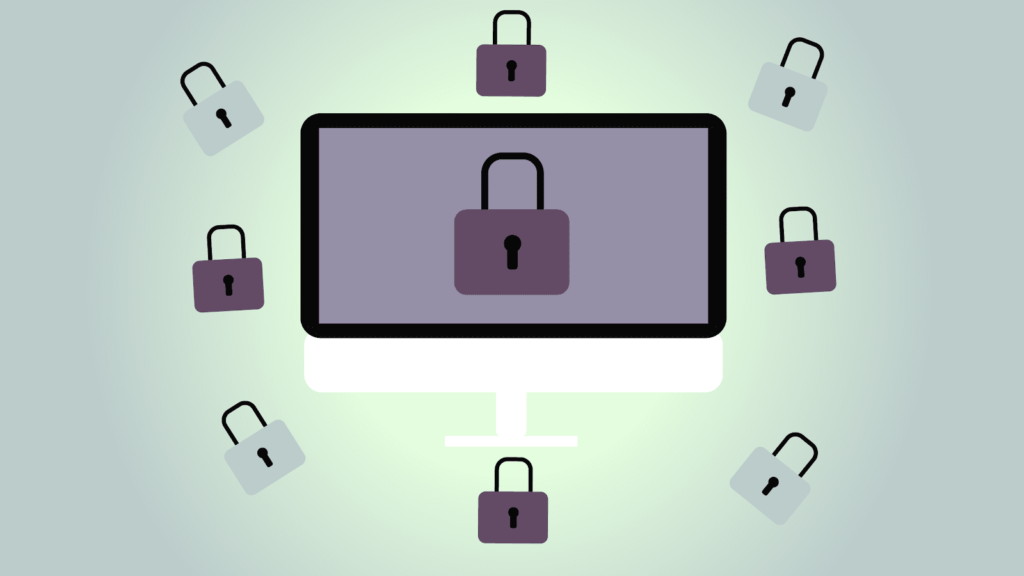Lockdown Browsers: Protecting Integrity or Invading Privacy?

Image courtesy of JIMMY KWAN
By Margaret Adams
One effect of online schooling has been the rise of lockdown browsers, which have been frequently used to test students in an experience parallel to the classroom to discourage and catch cheating.
One popular lockdown browser, Respondus, describes itself as a “customized browser that increases the security of test delivery in Blackboard. When students use Respondus LockDown Browser to access an exam, they are unable to print, copy, go to another URL, or access other applications.”
Lockdown browsers like Respondus, ProctorU, Proctorio, and Examity have applications that require students to record themselves during the test and also require a 360 view of the room they are taking the test in.
Inviting the classroom into your living space has its consequences; the invasive nature of lockdown browsers, both physical and technological, does not provide equal testing experiences to the classroom and promotes unnecessary surveillance of students.
Many students have expressed disdain for the use of lockdown browsers, as many lockdown browsers can prove to be faulty, cause anxiety, and increase surveillance. Lockdown browsers are also not able to provide an equal experience for students with disabilities.
“This software is essentially malware or academic stalkerware. It’s deeply invasive and allows school administrators to violate students’ privacy rights, but it’s also an enormous security threat,” said Evan Greer, Deputy Director of Fight for the Future, a digital rights non-profit, in an email interview with The Stuyvesant Spectator. “Universities are setting themselves up for massive student data breaches, lawsuits, and worse if they continue in this direction of forcing students to install dangerous surveillance software on their computers in order to get an education.”
A history of data breaches among test proctoring companies raises concerns about the security around the data collected by these services. ProctorU confirmed that 440,000 records were stolen and leaked publicly in August. In mid-October, Verificient, the maker of another test proctoring service, ProctorTrack, was hacked and forced to disable the service.
Students have also experienced being mistakenly kicked out of exams, or unprompted flagging of tests. Respondus is also not accessible for Chromebooks and has caused many students to stress over technological problems.
“I ended up spending more time trying to get Respondus to work on my malfunctioning laptop and searching for alternative computers than studying for the exam. Because I was at home, my mom offered me hers to use. However, if I wasn’t lucky enough to have that option, I’m not sure what I would’ve done,” said sophomore English major Bridget Ginuea about her Spanish final. “I can’t help but wonder if I wouldn’t have made as many mistakes on my exam if I wasn’t stressing over Respondus functioning or spent as much time trying to download it onto my laptop.”
A resolution has been passed and sponsored by SGA Senator Sijgers and co-sponsored by Senator Schlee, Senator Lucardi, Senator Zentz that pleads for the ban of lockdown browsers in classes on CUA.
“The ability of these softwares to properly interpret students’ actions and behaviors is known to be faulty and students with abnormal test-taking behavior are often flagged erroneously because their normal behaviours are seen as cheating,” states the resolution to Ban the Use of Third Party Digital Platforms to Proctor Exams.
The resolution also mentions how the singular experience of taking an online test using a lockdown browser is also not easily accessible for students with disabilities.
“Adjustments for students with DSS accommodations are not available or provided by these services,” states the resolution.
Jeff Rubenstein, vice president of product strategy at online learning platform Kaltura, told Digital Trends, “The student experience is better for everyone if the content that’s created is more useful for those who have disabilities.”
Despite the tactics that lockdown browsers use to catch cheating, students have still found a way past the lockdown restrictions. This amplifies the problem with test-taking formats, rather than the browsers themselves.
“In my experience, students nearly always find some way to cheat if they really want to,” Gabi Martorell, a psychology professor at Virginia Wesleyan University, said according to The Verge. “I would rather set up a situation where students are less likely to cheat.”
Another cause for concern is also the rise in stress and anxiety for students required to use lockdown browsers. One study found that there had been a general increase in depression, anxiety, and stress in students during quarantine, as compared to the year before.
“Lockdown browsers give me test-taking anxiety,” said sophomore Amanda Service. “I do worse on my exams when I use a lockdown browser rather than when I don’t use them because of my heightened anxiety.”
Using lockdown browsers does not necessarily deter cheating, and they make the online schooling experience worse by perpetuating the anxiety and stress that many are already experiencing. Lockdown browsers do not cause depression, anxiety, and stress, but they do not help relieve it either.
Students “should have tests created by teachers with the goal of learning more about the students’ abilities and interests,” Meena Negandhi, math coordinator at the French American Academy in Jersey City, New Jersey said according to Edutopia.
Students’ abilities and interests become impaired with the invasion of privacy that lockdown browsers bring. How can students expect to do well when they’re being recorded in their own bedroom?





